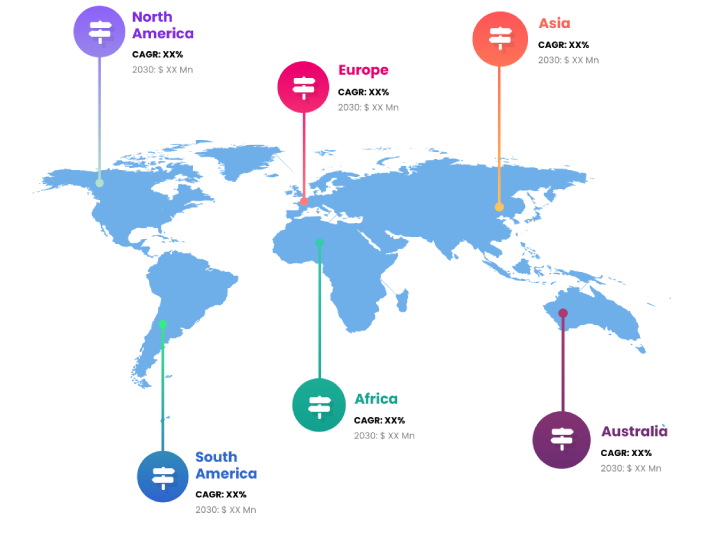A gene vector is a DNA molecule that is injected into cells to introduce new genes. This technique is employed to introduce foreign DNA into cells for the purposes of studying gene activity, protein expression, or cellular modification. Gene vectors have several applications in the fields of molecular biology, biotechnology, and medicine. As new gene editing technologies emerge, the global market is predicted to expand rapidly throughout the forecast period. Growth in the gene vector market is anticipated in the near future on account of rising investment in gene therapy research & development, as well as the quick uptake of gene treatments in clinical practise.

According to a research by the Genetic and Rare Diseases (GARD) Information Centre, more than 30 million Americans will have one of over 7,000 rare diseases by October 2021. Cells and genetically modified cells are "living drugs" that may repair and replace damaged tissues or ailing organs, which is what sets them apart from conventional medicine and surgical procedures. As a result of their qualities, they find use in the treatment of many different diseases.
The spread of COVID-19 has been good for the gene vector industry. Gene vector vaccines are among the many COVID-19 vaccine candidates currently undergoing testing in humans. These vaccines may be among the COVID-19 vaccines that receive global approval. Many of these others have also been approved or are in the final stages of doing so. Positive effectiveness and safety data from the Phase 3 ENSEMBLE clinical trial of Johnson & Johnson's AdVac adenoviral vector vaccination technology for COVID-19 were announced in January 2021. The vaccine against COVID-19 only has to be given once. For COVID-19 vaccines, Ad vectors are the cutting edge technology alongside mRNA vaccines.
Gene therapy, in which functional genes are introduced into cells via gene vectors to treat or prevent disease, has gained a lot of popularity in recent years. In the coming years, the demand for gene vectors is expected to rise as more people learn about the advantages of gene therapy. Diseases ranging from genetic issues and malignancies to infectious ones may all be treatable using gene therapy. Diseases like haemophilia and cystic fibrosis, which presently require lifelong management, may be cured permanently using this method. Market expansion is also being fueled by the rising incidence of genetic disorders including cystic fibrosis and sickle cell anaemia. The growth of the gene vector market may also be attributed to the rapid innovation of new and better gene vector products.
Lentivirus, adenovirus, adenoassociated virus (AAV), plasmid DNA, and others make up the vector type section of the worldwide market. Due to its distinct advantages, plasmid DNA is poised to become the most lucrative sector of the worldwide market in the next years. Purifying plasmid DNA from bacteria is a straightforward process, and common molecular biology procedures such as restriction enzyme digestion and ligation can be used to make modifications. And it may be used to clone and express genes in a wide variety of species, from bacteria and yeast to mammalian cells. The science of gene therapy makes extensive use of plasmid DNA vectors. As a result, this submarket is expected to generate the most revenue during the projection period.
The rise of the gene vector sector is being fueled by causes such as the increasing incidence of genetic abnormalities, cancer, and infectious diseases, the refinement of gene editing technologies, and the demand for more individualised treatments. Many forms of gene therapy rely on gene vectors to transport therapeutic genes into their intended recipient cells, and viral vectors have been the subject of intense research due to their many advantages. Approved for treatment against cancer, infectious illnesses, and monogenic disorders are a number of products that employ viral vectors to deliver therapeutic genes. Furthermore, many clinical trials are in way to improve their therapeutic value. More than two-thirds of all clinical trials involving gene therapy have made use of viruses for gene delivery, specifically retroviruses, Adenoviruses (Ad), poxviruses, Herpes Simplex Virus (HSV), and Adeno-Associated Viruses (AAV). Since these viruses are well-studied and can be easily managed in vitro, they were first employed to create gene delivery systems. There are many aspects of these viral vectors that influence their utility in medical settings.
Report Coverage
Global Gene Vector research report categorizes the market for global based on various segments and regions, forecasts revenue growth, and analyzes trends in each submarket. Global Gene Vector report analyses the key growth drivers, opportunities, and challenges influencing the global market. Recent market developments and Gene Vector competitive strategies such as expansion, product launch and development, partnership, merger, and acquisition have been included to draw the competitive landscape in the market. The report strategically identifies and profiles the key Gene Vector market players and analyses their core competencies in each global market sub-segments.
| REPORT ATTRIBUTES | DETAILS |
|---|---|
| Study Period | 2017-2030 |
| Base Year | 2022 |
| Forecast Period | 2022-2030 |
| Historical Period | 2017-2021 |
| Unit | Value (USD Billion) |
| Key Companies Profiled | Lonza, Merck KGaA, Oxford Biomedica, CGT Catapult, Charles River Laboratories, uniQure N.V., FUJIFILM Diosynth Biotechnologies, and Spark Therapeutics, Inc. Increase in mergers & acquisitions, strategic collaborations |
| Segments Covered | • By Product |
| Customization Scope | Free report customization (equivalent to up to 3 analyst working days) with purchase. Addition or alteration to country, regional & segment scope |
Key Points Covered in the Report
- Market Revenue of Gene Vector Market from 2021 to 2030.
- Market Forecast for Gene Vector Market from 2021 to 2030.
- Regional Market Share and Revenue from 2021 to 2030.
- Country Market share within region from 2021 to 2030.
- Key Type and Application Revenue and forecast.
- Company Market Share Analysis, Gene Vector competitive scenario, ranking, and detailed company
profiles. - Market driver, restraints, and detailed COVID-19 impact on Gene Vector
Market
Competitive Environment:
The research provides an accurate study of the major organisations and companies operating in the global Gene Vector market, along with a comparative evaluation based on their product portfolios, corporate summaries, geographic reach, business plans, Gene Vector market shares in specific segments, and SWOT analyses. A detailed analysis of the firms' recent news and developments, such as product development, inventions, joint ventures, partnerships, mergers and acquisitions, strategic alliances, and other activities, is also included in the study. This makes it possible to assess the level of market competition as a whole.
List of Major Market Participants
Lonza, Merck KGaA, Oxford Biomedica, CGT Catapult, Charles River Laboratories, uniQure N.V., FUJIFILM Diosynth Biotechnologies, and Spark Therapeutics, Inc. Increase in mergers & acquisitions, strategic collaborations
Primary Target Market
- Market Players of Gene Vector
- Investors
- End-users
- Government Authorities
- Consulting And Research Firm
- Venture capitalists
- Third-party knowledge providers
- Value-Added Resellers (VARs)
Market Segment:
This study forecasts global, regional, and country revenue from 2019 to 2030. INFINITIVE DATA EXPERT has segmented the global Gene Vector market based on the below-mentioned segments:
Global Gene Vector Market, By Vector Type
Lentivirus
Adenovirus
Adeno-associated Virus (AAV)
Plasmid DNA
Others
Global Gene Vector market, By Application
Gene Therapy
Vaccinology
Others
Global Gene Vector Market, By End User
Scientific Research
CRO
CDMO
Others (Pharmaceutical, Biotechnology Companies)
Global Gene Vector market, Regional Analysis
- Europe: Germany, Uk, France, Italy, Spain, Russia, Rest of Europe
- The Asia Pacific: China,Japan,India,South Korea,Australia,Rest of Asia Pacific
- South America: Brazil, Argentina, Rest of South America
- Middle East & Africa: UAE, Saudi Arabia, Qatar, South Africa, Rest of Middle East & Africa
You will get in-depth and extensive gene vector market market research and competitor analysis for your business to help you develop more profound insights into the gene vector market Market.
Through INFINITIVE Data Expert is a professional Market Research services, I will identify the gene vector market market size, demand & opportunities, growth rate, and target audience with a comprehensive analysis of your competitors.



